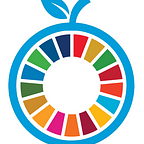Driving innovation investments for sustainable agriculture in the Global South
By the Commission on Sustainable Agriculture Intensification (CoSAI)
The COVID-19 pandemic has left the world reeling, with economies hard hit and inequalities in access to food and healthcare laid bare. Add to that global climate change, population growth and increased pressure on limited natural resources, and we have a situation where sustainably producing a nutritious diversity of food for everyone is a massive challenge.
In order to meet this challenge, we need to make sure that investments in global food systems are adequate, targeted and money well spent. We cannot afford ‘business as usual’: current technology, policies, institutions and financial instruments are just not up to the job. Investment needs to drive innovation to create new, workable and sustainable ways of producing food.
To make this happen, a global partnership of experts is making a case for more and better investment in ‘sustainable agricultural intensification’ (SAI) to increase the availability of affordable, safe and nutritious food, while maintaining a healthy natural environment, and reducing poverty and inequality. The Commission on Sustainable Agriculture Intensification (CoSAI) is working with governments, private companies, and research and development organizations, encouraging them to support and invest in innovation in SAI in the Global South.
Why fund innovation in the Global South?
With the global population set to increase to 10 billion by 2050, we need to produce more food sustainably. We need smart solutions, not least because agriculture already uses almost 50% of the world’s land surface and generates 25% of greenhouse gas emissions. And we need to make sure that solutions support the world’s food systems, particularly those in the Global South — home to around 80% of the world’s population, but where many cannot afford a healthy diet (57% of people in sub-Saharan Africa and Southern Asia).
Billions of dollars are invested every year in agricultural innovation for the Global South. Yet CoSAI research shows that only a small fraction is intended to promote the environmental and social objectives of SAI. CoSAI aims to rectify this underinvestment, and in so doing support a necessary transformation of global food systems. This means aligning agricultural systems more closely with the United Nations Sustainable Development Goals and contributing positively to the climate agenda.
What is the Commission on Sustainable Agriculture Intensification?
CoSAI was launched in July 2020 and includes a network of 21 independent commissioners from government, the private sector and research institutes in the Global South. CoSAI Commissioners are building support for innovation in the public and private sectors in order to rapidly scale up innovation in SAI in the Global South.
For CoSAI, innovation means the development and uptake of new ways of doing things — in policy, social institutions and finance, as well as in science and technology. To achieve this, CoSAI is building partnerships with investors, gathering evidence to inform investment strategies and decision-support tools, and establishing a taskforce to formulate a set of principles and metrics specifically designed to guide innovation in SAI.
The first of four major studies, due to be published next month, will provide an important baseline measure of the current global level of investment in innovation within agricultural systems. The second, a partnership between CoSAI and the ‘Transforming Agricultural Innovation for People, Nature and Climate’ campaign will calculate the global investment gap.
Further studies will provide a critical comparison of different approaches and instruments designed to encourage innovation, and document some successful case studies of pathways to innovation — from Brazil, India and Kenya — to guide future investment.
CoSAI’s findings and reports will feed into the United Nations Food Systems Summit and other key global decision-making events, such as COP26, and will be shared with national and international funders and investors.
If you are interested in how CoSAI is working to improve investment in innovation to transform global food systems, please visit our website. Or visit our partners at the ‘Transforming Agricultural Innovation for People, Nature and Climate’ campaign to pledge your support.
About CoSAI: CoSAI is supported by the CGIAR Research Program on Water, Land and Ecosystems (WLE) and is facilitated by a Secretariat based at the International Water Management Institute headquarters in Colombo, Sri Lanka. WLE is supported by the CGIAR Trust Fund and other donors. CoSAI Commissioners are independent.
The views and opinions expressed in this blog are those of the author and do not necessarily reflect the official policy or position of the United Nations Food Systems Summit.
